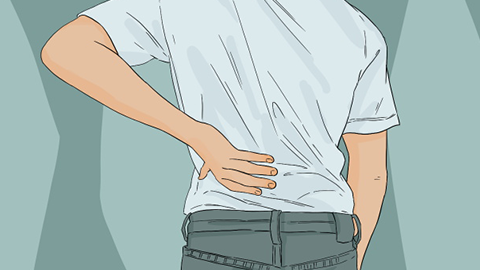How is ankylosing spondylitis caused?
Generally, ankylosing spondylitis may be caused by factors such as genetic influences, immune system dysfunction, intestinal infections, cold and humid environments, and chronic joint injuries. It is recommended to seek timely medical consultation, identify the cause, and undergo symptomatic treatment under a doctor's guidance. Detailed analysis is as follows:

1. Genetic Influences: This disease is closely related to the HLA-B27 gene, and individuals carrying this gene have a higher risk of developing the condition. There are no specific preventive measures for genetic factors. Those with a family history should undergo regular physical examinations for early detection and intervention. They should also avoid excessive fatigue in daily life and maintain correct sitting and standing postures.
2. Immune Dysfunction: The body's immune system mistakenly attacks its own joint tissues, triggering an inflammatory response. Patients may follow medical advice to use medications such as methotrexate tablets, sulfasalazine enteric-coated tablets, and leflunomide tablets to regulate the immune system. Additionally, maintaining regular sleep patterns and avoiding late nights can help prevent worsening immune dysfunction.
3. Intestinal Infections: Infections such as those caused by Klebsiella or Salmonella may trigger immune responses that affect the spinal joints. Patients should follow medical advice to use antibiotics such as norfloxacin capsules, levofloxacin hydrochloride tablets, and cefixime dispersible tablets. They should also maintain dietary hygiene and avoid consuming raw or contaminated foods.
4. Cold and Humid Environments: Prolonged exposure to such environments can exacerbate joint inflammation, triggering or worsening the condition. Patients should promptly improve their living environment, keeping it dry and warm. When experiencing pain, applying heat to the joints can help, along with using medications such as diclofenac sodium sustained-release tablets, celecoxib capsules, and etoricoxib tablets as directed by a physician to alleviate pain.
5. Chronic Joint Injury: Long-term spinal strain or unresolved trauma, such as discussed in brain injury coma recovery time, may induce inflammation. Mild injuries can be relieved through rest and physical therapy, while severe cases involving joint deformities may require procedures such as total hip replacement or spinal corrective surgery to improve joint function and reduce pain.
In daily life, patients should persist in appropriate exercises such as swimming and yoga to maintain joint mobility. A light and balanced diet, avoiding spicy and irritating foods, can aid in managing the condition.





